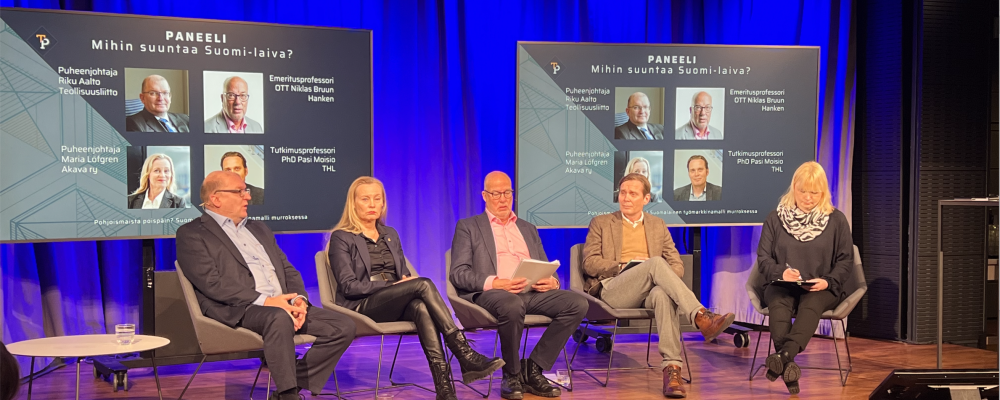
The logic behind the actions of employers has caused some bewilderment over the past few years. EK, the employers’ central organization, withdrew from central-level collective negotiations and demands more local bargaining, but still wants to coordinate pay settlements. Author of the report, PhD Maiju Wuokko analysed the employers’ seemingly contradictory actions and explains the motives behind them.

The actions of the Technology Industries of Finland are, as Wuokko puts it, some of the “most peculiar balancing acts between company-specific and union-level negotiations on the employer side.” The organization decided to no longer negotiate collective agreements, but provided assistance to those among its member companies who wanted a company-specific collective agreement for themselves. In addition, a new organization named Technology Industry Employers of Finland was established for the companies that still wanted to comply with the national collective agreement.
Company-specific agreements proved much less appealing than their advocates had led others to believe. So many companies joined the “collective agreement organization” that the collective bargaining coverage in the technology industry increased to 65 per cent, and the collective agreements remained universally binding in all other contract branches except the IT service sector.
According to Wuokko, EK has in recent years aimed for “coordinated distribution”, i.e. a solution where the unions have bargaining power in principle, but the central organization keeps a close eye on their agreements to make sure they are not too costly. EK therefore still wants to retain some power in the labour market while simultaneously lobbying to achieve its goals through politics. (View the report here, in Finnish.)
Unprecedented government intervention in the labour market
At the publication event of the report at Musiikkitalo on Wednesday, 7 February, comments were heard concerning the exceptional intervention of the Finnish government in the labour market, while claims of conforming to the Nordic model were criticised.
“In no other Nordic country has the government resorted to such an excessive and unilateral intervention in the labour market. This takes us further from the other Nordic countries, making it questionable to justify the reforms with the Nordic model,” commented DSocSc Ilkka Kärrylä from the University of Turku.
Kärrylä argues that, in many respects, we are already going further than the other Nordics, referring to our weak earnings-related unemployment security as an example.
Akava’s Chair Maria Löfgren expressed concern about how the government's reforms will affect young people.
“When a young person enters the job market, they may accept a fixed-term seven-month job that is entirely unfounded. They will not be able to accept other jobs during this time. If they have no other work experience, this seven-month stint will not even fulfil the prior work requirement for earnings-related unemployment security.”
According to LL.B. Lasse Laatunen, the employer has been practising a lot of image politics. The employer side has built an image where Finland is backward and everything is better in Sweden. Laatunen believes that the labour market systems of the two countries should be compared as a whole, not just by picking out individual elements.
“I would argue that in terms of the employer, the system as a whole already works better in Finland than in Sweden. The only conclusion I can draw from all this is that there is an unprecedented power struggle going on in the labour market today. The aim is to restrict political industrial action, because the belief is that future governments will also want to intervene in the labour market through legislation,” says Laatunen who was EK’s Labour Market Director back in 2012–2014.
Professor Emeritus Niklas Bruun from Hanken pointed out what happened in Sweden in the 1990s.
“Sweden’s EK did the same in the 90s as what Finland’s EK is doing now. They announced that they would no longer negotiate agreements. Instead, they set out to influence legislation. But when the democrats regained power, all the laws that had benefited the employer side were repealed.”
Bruun says that Sweden’s EK is a major negotiating party these days. It follows an entirely different policy than what Finland’s EK is currently doing. Local bargaining in Sweden is based on collective agreements. There is flexibility built into them.
TEK is a member of the Industrial Employees TP and TEK’s CEO Jari Jokinen is currently chair of the organization.